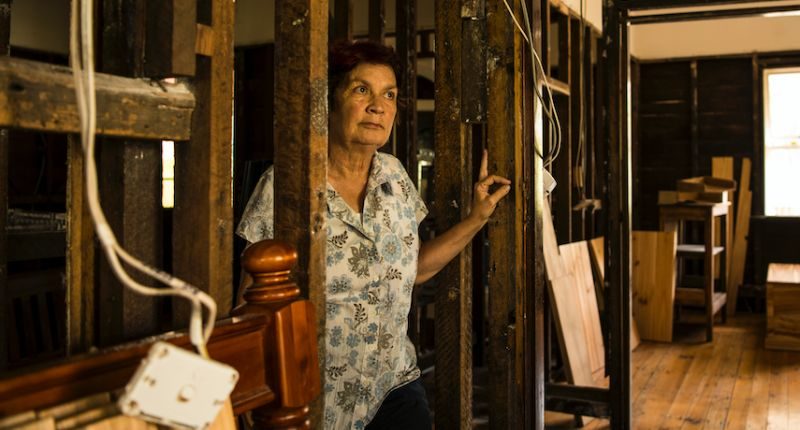
- Lismore City Councillor Elly Bird, says the community is "exhausted".
- AFCA received 2,000+ complaints from flood-affected consumers.
- Most complaints were around delays in insurance claim handling.
One year on from the devastating Lismore flood disaster many flood victims are still feeling the repercussions.
Managing Director of community recovery organisation Resilient Lismore and Lismore City Councillor, Elly Bird, describes the Northern Rivers community as experiencing “a collective trauma.”
“People simply cannot navigate day to day. We’re exhausted. And while we continue to rebuild and may well achieve some type of ‘normal’, it is abundantly clear that the mental health repercussions will be with us for a very long time,” Cr Bird said.
She explained that those who find themselves still displaced, a year on, are especially feeling the pain. Rubbing salt in the wounds of flood victims, many have had their claims refused while others are still waiting to hear from their insurers.
Insurance battle ongoing
The Australian Financial Complaints Authority (AFCA) has reported receiving more than 2,000 complaints from flood-affected consumers in the year since the south-east Queensland and northern NSW storms. The most common complaint issue was the delays in insurance claim handling.
The number of complaints made to AFCA is more than four times that received in relation to the next most significant weather-related event – the South-East Coast storms of February 2020 – which generated 493 complaints.
AFCA’s Chief Ombudsman and Chief Executive, David Locke has expressed concern over the volume of complaints made about the insurance delays.
“We understand that the scale of this event has put pressure on insurers but these sorts of complaints can often be avoided through good, regular communication with customers.”
David Locke, AFCA’s Chief Ombudsman and Chief Executive
“We would also prefer to see insurers resolving many more complaints within their own dispute resolution process, rather than consumers having to take the extra step of coming to AFCA – prolonging the time they spend in limbo, unable to get on with their lives,” he said.
In the past year, flood-affected policyholders have secured nearly $13 million in compensation and refunds from insurers through the AFCA process.

Calls for insurance companies to address complaints
AFCA’s Lead Ombudsmen for Insurance, Emma Curtis, said AFCA encourages insurers to address claims and complaints as quickly as possible in-house or as early as possible in the AFCA process.
“We acknowledge that the heavy flow of unresolved insurance complaints to AFCA means we have not been able to address complaints as quickly as usual,” Ms Curtis said.
“But we have increased our resources and capacity to handle insurance complaints significantly over the past year, and this is having a positive effect.
“By working closely with insurers to help them resolve simpler complaints early, and take a consumer-centric approach, we are confident complaint volumes will reduce over time,” she said.
AFCA has also introduced new processes to help keep consumers up to date on the progress of their complaints.
“We expect insurers to do all they can to assess claims promptly, to regularly inform customers about expected timeframes, and to clearly communicate about claims options.”
Emma Curtis, AFCA Lead Ombudsmen for Insurance
The disaster takes a mental health toll
The Climate Council has released a new study, Climate Trauma: the growing toll of climate change on the mental health of Australians, which found more than 80% of Australians have experienced a disaster in the past five years. Of those, half reported experiencing a mental health issue as a result.
The study of 2,508 people included testimony from Lismore and Northern New South Wales residents and people who have experienced disasters across the country.
Climate Council Research Director Simon Bradshaw is the author of the report.
“Decades of scientific research have taught us a lot about the physical risks of climate change, but far less attention has been paid to the impact of climate change on our mental health,” Dr Bradshaw explained.
“As a society, we need to have serious conversations about the sting in the tail of climate disasters: about the mental health fallout – not just in Lismore – but all around the country.”
Simon Bradshaw, Climate Council Research Director
“The results highlight the devastating toll that climate change is having on the mental health of our communities. They show that stronger action on climate change is fundamental to protecting the mental well being of Australians.”







